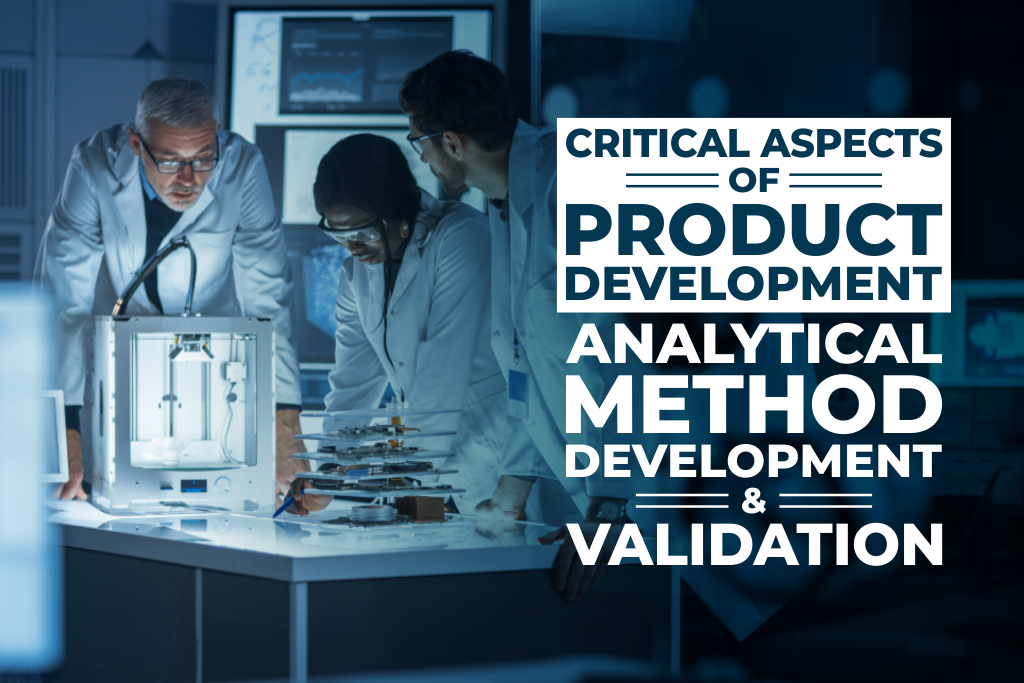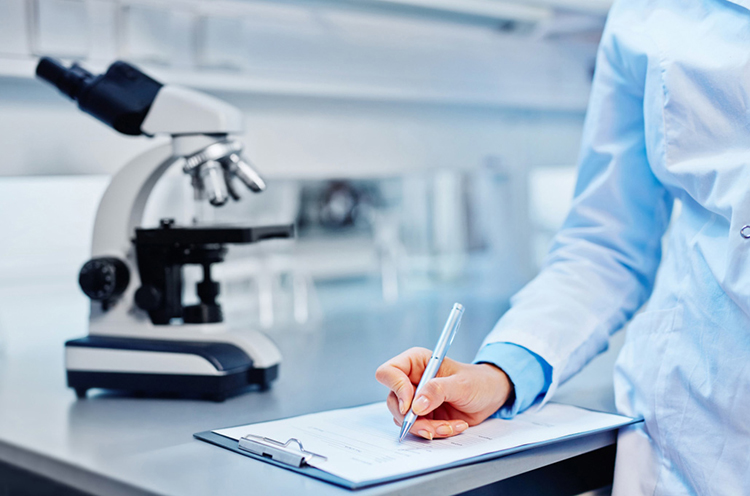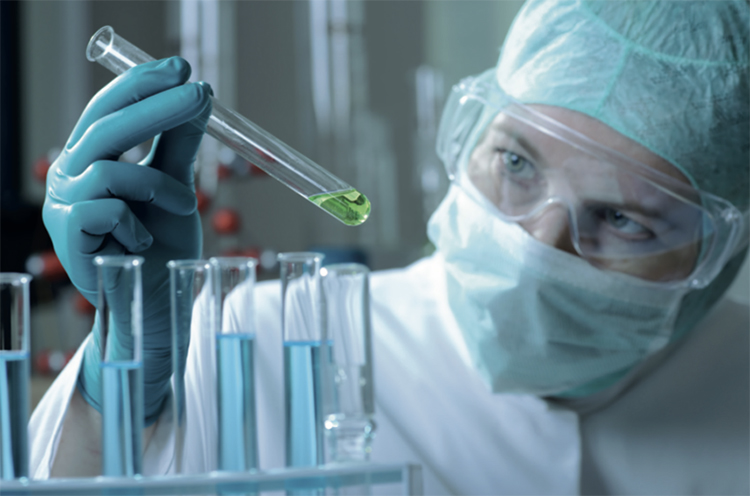
Over the past few years, pharmaceutical companies across the globe have been emphasizing more on the safety, quality, and efficacy of their drug products. As a result, the Pharmaceutical industry spends enormous resources and money on their new drug development. Analytical method development and validation are critical aspects of the drug development process to achieve reliable analytical data. Regulatory and government bodies such as FDA, ICH, and EMA have guided method development and validation with “Analytical Procedures and Methods Validation for Drugs and Biologics,” “ICH Q2(R1)“, and “Bioanalytical Method Validation.”
Developing effective, reliable, and accurate methods from the initial stage of product development is an arduous task as the process is complex and time-consuming. Thus, pharmaceutical companies require qualified scientists with a deep understanding of current regulations and relevant chemistries with state-of-the-art instrumentation. Research and development, quality control, and quality assurance are the three central departments involved in this process.
Analytical Method Development:
Analytical methods are essential to ensure the drug substance and product’s identity, strength, quality, purity, and potency. Methods are developed to support drug testing against specifications during manufacturing, quality release operations, and long-term stability studies. Methods may also support safety and characterization studies or evaluations of drug performance.
The most common types of analytical procedures as per ICH are:
- Identification tests
- Quantitative tests of the active moiety in samples of API or drug product or other selected component(s) in the drug product
- Quantitative tests for impurity content
- Limits tests for the control of impurities

Early in developing a new analytical procedure, the scientists should select the choice of analytical instrumentation and methodology based on the intended purpose and scope of the analytical method. The parameters that may be evaluated during method development are specificity, linearity, limits of detection (LOD), quantitation (LOQ), range, accuracy, and precision. In addition, the robustness of the method is another criterion of early-stage assessment for selecting a suitable method. Finally, evaluation of a method’s performance may include analyses of samples obtained from various stages of the manufacturing process, from in-process to the finished product.
Analytical Method Validation:
The objective of validating an analytical procedure is to demonstrate that it is suitable for its intended purpose. Any analytical method applied to a pharmaceutical product under current Good Manufacturing Practices (cGMPs) requires validation. The methods used to produce data supporting the production of pharmaceuticals or regulatory filings (with FDA) need to be validated before use. Validated analytical methods support a drug’s characterization, quality control, and manufacturing batch records.
Typical validation characteristics which should be considered as per ICH Q2(R1) and the USP chapter <1225> Validation of Compendial Procedures are listed below:
- Accuracy: The accuracy of an analytical procedure expresses the closeness of agreement between the value, which is accepted either as an actual conventional value or an accepted reference value, and the value found.
- Precision: The precision of an analytical procedure expresses the closeness of agreement between a series of measurements obtained from multiple sampling of the same homogeneous sample under the prescribed conditions. The precision may be considered at three levels: repeatability, intermediate precision, and reproducibility.
- Repeatability: Repeatability expresses the precision under the same operating conditions over a short time interval. Repeatability is also termed intra-assay precision.
- Intermediate Precision: Intermediate precision expresses within-laboratories variations: different days, different analysts, different equipment, etc.
- Specificity: Specificity is the ability to assess the analyte unequivocally in the presence of components expected to be present. Typically these might include impurities, degradants, matrices, etc. Other supporting analytical procedures may compensate lack of specificity of an individual analytical procedure.

This definition has the following implications:
1. Identification is made to ensure the identity of an analyte.
2. Purity Tests are made to ensure that all the analytical procedures are performed to allow an accurate statement of the content of impurities of an analyte.
3. An Assay test (content or potency test) is done to provide an exact result that allows an accurate statement of the content or potency of the analyte in a sample.
- Detection Limit: The detection limit of an individual analytical procedure is the lowest analyte in a sample that can be detected but not necessarily quantitated as an exact value.
- Quantitation Limit: It is a characteristic of quantitative assays for low compounds in sample matrices, such as impurities in bulk drug substances and degradation products in finished pharmaceuticals.
- Linearity Range: The linearity of an analytical procedure is its ability (within a given range) to obtain test results that are directly proportional to the concentration (amount) of analyte in the sample.
- Robustness: The robustness of an analytical procedure is a measure of its capacity to remain unaffected by minor but deliberate variations in method parameters and indicates its reliability during normal usage.

Conclusion:
Analytical method development and validation are continuous and interconnected activities conducted throughout the drug development process. Further, several companies provide analytical method development and validation services for new drugs. These companies are commonly known as contract development and manufacturing organizations (CDMOs).
At NEWEDGE Overseas, we offer Analytical Method Development and Analytical Method Validation services. Our services include drug assessment that encompasses testing and providing information regarding various drugs’ potency, stability, bioavailability, and effect. We also undertake to characterize analytes to ascertain their biological and chemical properties. These services facilitate cost-optimization and help minimize drugs’ efficiency, precision, and accuracy.